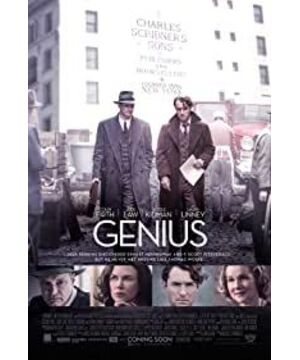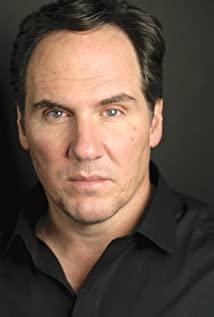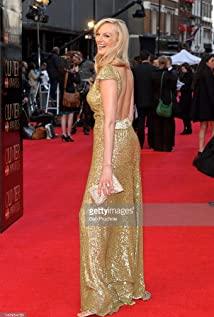Strictly speaking, the subject matter of the "Genius Catcher" movie itself is very interesting, and the original novel adapted from it is the legendary editor who has discovered Hemingway, Fitzgerald (the work "The Great Gatsby") and other famous authors - Mike The story of Perkins. The role of a book editor is rare in film and television works, but the Japanese film "Bai Zhou Ji", which was adapted from a novel, has won unprecedented praise in the market after its release by showing an editor's 13-year experience in compiling "Ci Hai". As the hero behind a book, the hardships and loneliness that editors endure in the process is actually easy to show the depth. Especially behind successful books, the stories of authors and editors are more likely to arouse the audience's curiosity and resonate.
Therefore, with such a "pretentious" theme, and the addition of superstars such as Colin Firth, Jude Law, Nicole Kidman, etc., a good drama is about to come out. But after watching the whole film, the exaggerated acting and overly dramatic plot made this film greatly dilute what should be worth thinking about, which is really a pity. Of course, it's not that these actors' acting skills are not good enough, it's just that there is always a feeling of "making mistakes". At the heart of the film is the experience between Perkins and the novelist Thomas Wolfe. From the acquaintance of the two because of their works, to fighting all the way, and finally breaking and separating. This story itself is also the one that Perkins is most concerned about, and it is understandable to focus on the description, but Jude Law used a stage-style performance for Wolff throughout the whole process. While grabbing the scene, many things in the film are offset. .
In order to show Wolff's confidence and enthusiasm for writing and his talents, Jude Law uses a large amount of exaggeration from beginning to end, both in body language and tone of voice. From the beginning to the end, the characters are always in a state of "playing chicken blood" with the emotions of opening and closing, and even in the handling of sad emotions, they all cry to the core, a Taiwanese romance drama-style battle. The final effect of this dramatic performance is seriously inconsistent with the overall "grey and low" style of the film, and it even makes people think that the protagonist of the film should be Wolf. I don't know why Jude Law took this approach, but given that most of the film director Michael Grandage's successful directing experience is on stage, it may be inevitable to learn from each other.
In the minds of most audiences, most writers are relatively introverted and calm in their external performance. Although Wolff's words and deeds will not be deeply studied by many people, as a biographical film, it will inevitably make people feel that they are not convincing enough. This strong sense of drama also spreads to the plot of the film. Many scenes in the film are obviously set up to create a sense of conflict. For example, the scene where Wolff's wife Irene confronts the editor in the office is already difficult for the audience to make. It feels like I'm watching a "real event".
Therefore, a film that originally had a lot of room for discussion, because the creator's too dramatic treatment, the whole film was at least greatly reduced in terms of credibility. Just as some viewers joked that they did not see "Mei Lanfang" after watching "Mei Lanfang", this film can only be regarded as a qualified film adapted under the standard Hollywood routine.
View more about Genius reviews











